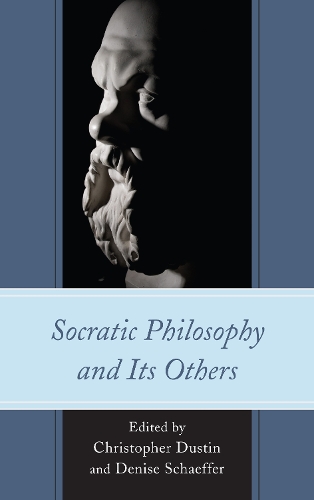
Socratic Philosophy and Its Others
(Paperback)
Publishing Details
Socratic Philosophy and Its Others
By (Author) Denise Schaeffer
Edited by Christopher Dustin
Contributions by Michael Davis
Contributions by Catherine H. Zuckert
Contributions by Gwenda-lin Grewal
Contributions by Mary P. Nichols
Contributions by Denise Schaeffer
Contributions by Christopher A. Colmo
Contributions by David Corey
Contributions by Matthew Dinan
Bloomsbury Publishing PLC
Lexington Books
30th November 2015
United States
Classifications
Professional and Scholarly
Non Fiction
183.2
Physical Properties
Paperback
310
Width 151mm, Height 232mm, Spine 23mm
467g
Description
The overall aim of the volume is to explore the relation of Socratic philosophizing, as Plato represents it, to those activities to which it is typically opposed. The essays address a range of figures who appear in the dialogues as distinct others against whom Socrates is contrastedmost obviously, the figure of the sophist, but also the tragic hero, the rhetorician, the tyrant, and the poet. Each of the individual essays shows, in a different way, that the harder one tries to disentangle Socrates own activity from that of its apparent opposite, the more entangled they become. Yet, it is only by taking this entanglement seriously, and exploring it fully, that the distinctive character of Socratic philosophy emerges. As a whole, the collection sheds new light on the artful ways in which Plato not only represents philosophy in relation to what it is not, but also makes it strange to itself. It shows how concerns that seem to be raised about the activity of philosophical questioning (from the point of view of the political community, for example) can be seen, upon closer examination, to emerge from within that very enterprise. Each of the essays then goes on to consider how Socratic philosophizing can be defined, and its virtues defended, against an attack that comes as much from within as from without. The volume includes chapters by distinguished contributors such as Catherine Zuckert, Ronna Burger, Michael Davis, Jacob Howland, and others, the majority of which were written especially for this volume. Together, they address an important theme in Platos dialogues that is touched upon in the literature but has never been the subject of a book-length study that traces its development across a wide range of dialogues. One virtue of the collection is that it brings together a number of prominent scholars from both political science and philosophy whose work intersects in important and revealing ways. A related virtue is that it treats more familiar dialogues (Republic, Sophist, Apology, Phaedrus) alongside some works that are less well known (Theages, Major Hippias, Minor Hippias, Charmides, andLovers). While the volume is specialized in its topic and approach, the overarching questionabout the potentially troubling implications of Socratic philosophy, and the Platonic responseshould be of interest to a broad range of scholars in philosophy, political science, and classics.
Author Bio
Christopher A. Dustin is professor of philosophy at the College of the Holy Cross and coauthor of Practicing Mortality: Art, Philosophy, and Contemplative Seeing. Denise Schaeffer is associate professor of political science at the College of the Holy Cross and coeditor (with Gregory A. McBrayer and Mary P. Nichols) of the Focus edition of Plato's Euthydemus.
